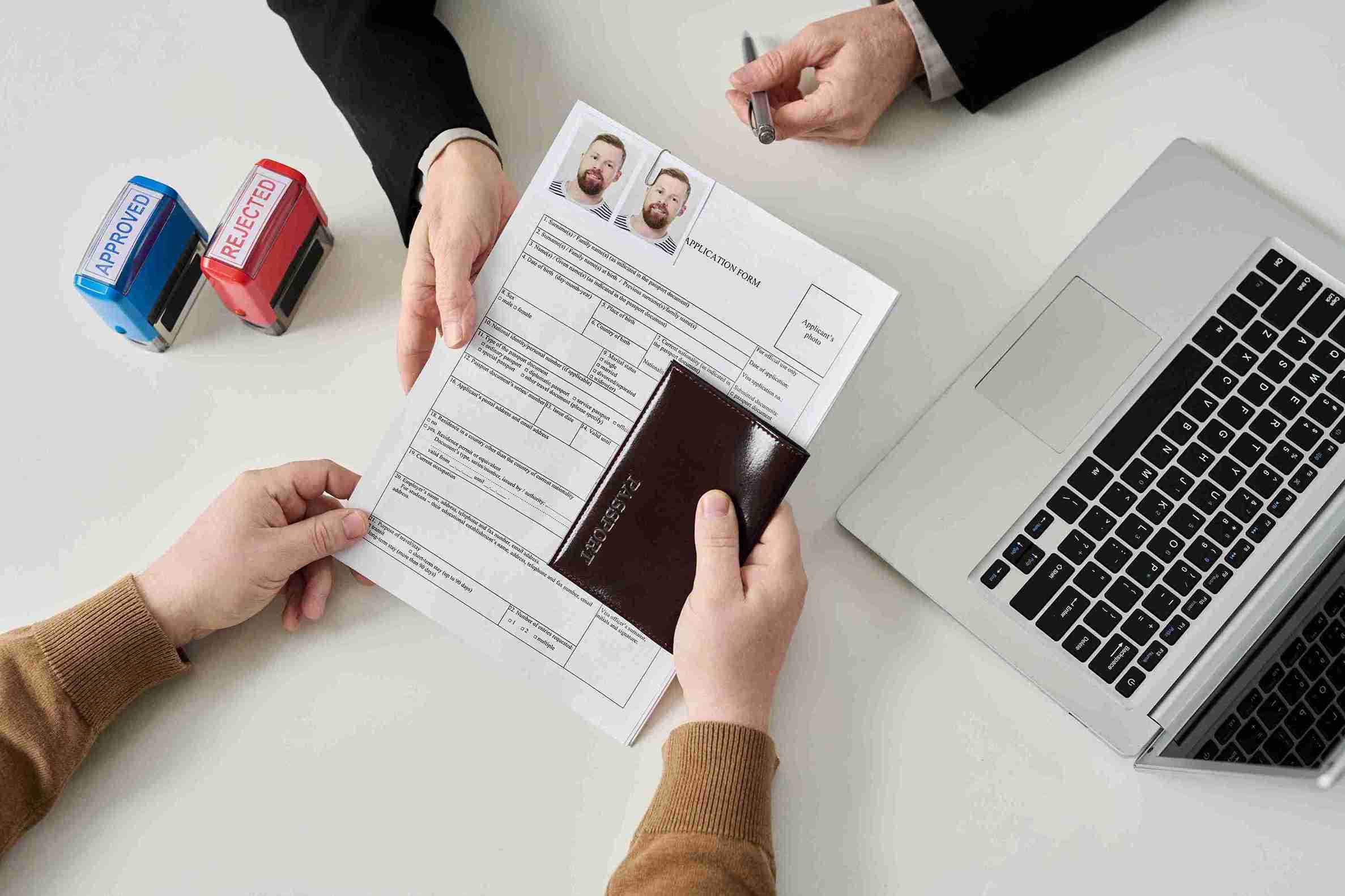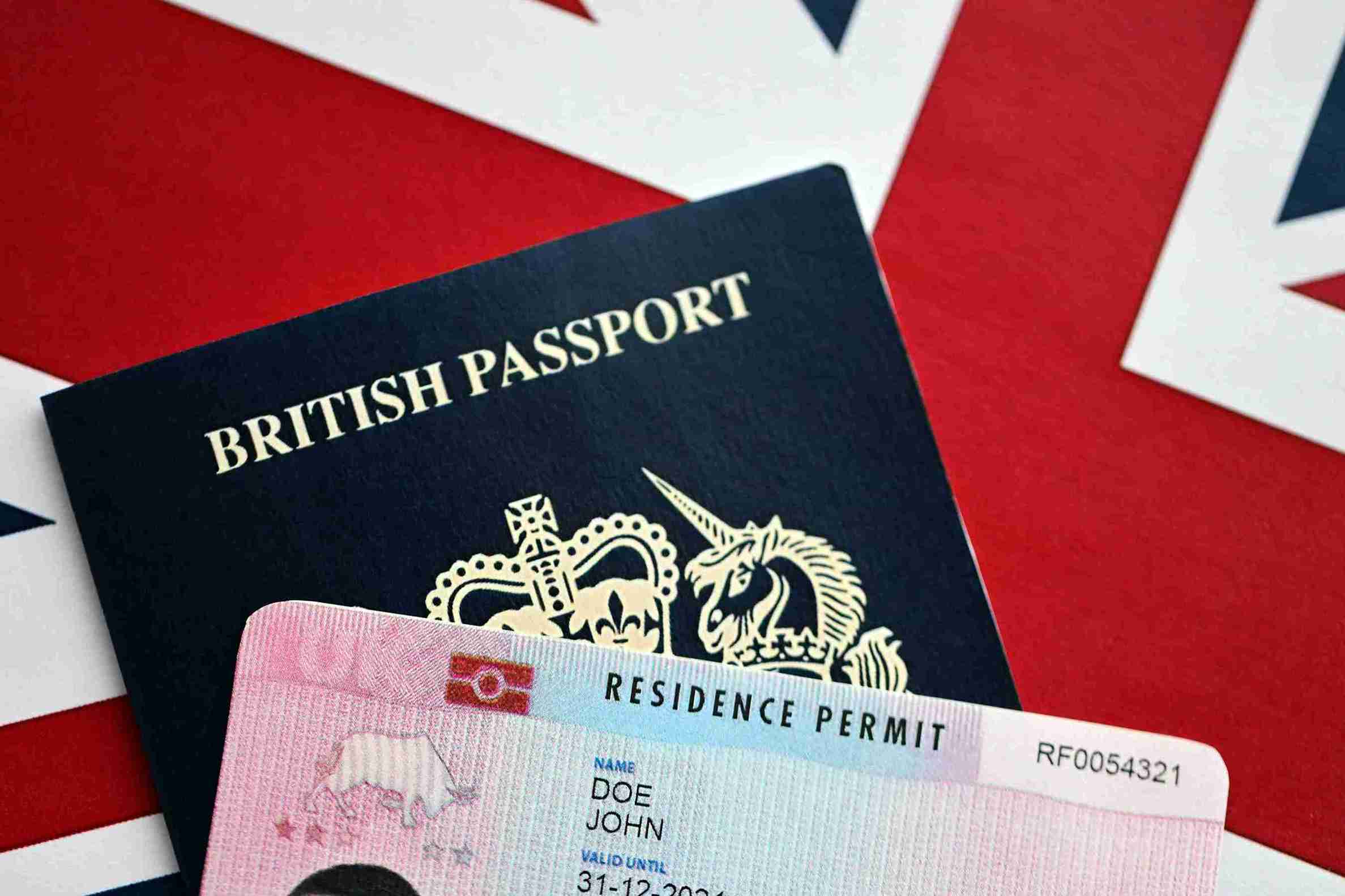Contact us today for ADR Visa support.
What is Adult Dependent Relative Visa Route?
The Adult Dependent Relative visa (ADR) allows individuals with significant ongoing care needs to join a close relative in the UK. Applicants must demonstrate that, due to age, illness, or disability, they require long-term personal care that can only be adequately provided by their UK sponsor.
Under exceptional circumstances involving extensive care requirements, applicants may be granted permanent settlement through the adult dependent relative visa.

How Do Adult Dependent Relative Visas Work?
The Adult Dependent Relative (ADR) visa allows applicants with long-term personal care needs to join close relatives in the UK. Eligibility is strict, and successful applicants sponsored by a British citizen or settled person receive indefinite leave to enter, enabling them to live in the UK indefinitely.
- If the sponsor has limited leave, the visa aligns with their status and carries no recourse to public funds.
- Applications must be made from outside the UK; switching from within the UK is not permitted.
- Once the sponsor gains indefinite leave, the ADR holder can apply for indefinite leave to remain.
- The policy ensures only those whose care cannot be met abroad are admitted, offering access to NHS and local services.
Who Qualifies for Adult Dependent Relative Visas?
Following a 2020 Law Commission report that highlighted the complexity of the Adult Dependent Relative (ADR) visa rules and low approval rates, the government has clarified the requirements. These revisions were aimed at clarifying the process and accessibility for eligible applicants.
Therefore, since March 2023, the Adult Dependent Relative (ADR) route is governed by Appendix Adult Dependent Relative, replacing the previous provisions in Appendix FM of the Immigration Rules. Nevertheless, the qualifying requirements remain, but have been restructured for clarity.
An adult dependent relative of a UK sponsor may include:
- A parent aged 18 years or over
- A grandparent
- A brother or sister aged 18 years or over
- A son or daughter aged 18 years or over
The UK sponsor, at the time of the application, must be aged 18 years or over and:
- A British or Irish citizen in the UK
- Present and settled in the UK
- Holding refugee leave or humanitarian protection in the UK
- An EEA national with limited leave to remain under Appendix EU
Requirements for Adult Dependent Relative Visas
To secure an Adult Dependent Relative visa, you must meet the criteria set by UK Visas and Immigration.
The essential requirements are as follows:
- Eligible Relationship: You must be:
- A parent aged 18 years or over,
- A grandparent,
- A brother or sister aged 18 years or over,
- A son or daughter aged 18 years or over, of a person residing in the UK who is also over 18 years old and is either:
- A British citizen,
- Settled in the UK,
- Holding limited leave to remain in the UK under Appendix EU,
- Granted refugee status or humanitarian protection.
- Need for Long-Term Personal Care: You must require long-term personal care due to age, illness, or disability, which includes help with everyday tasks such as washing, dressing, and cooking.
- Inability to Access Care in Home Country: You must demonstrate that you cannot obtain the required level of care in your home country despite financial support from your UK family member. This could be due to:
- The unavailability of adequate care,
- The absence of a close relative, home-help, housekeeper, nurse, carer, or care/nursing home who can reasonably provide the care, or;
- The care being unaffordable.
- Maintenance and Accommodation in the UK: Your UK family member must ensure you will be adequately maintained, accommodated, and cared for in the UK without accessing public funds. If your family member is a British citizen or settled in the UK, they must commit to a five-year undertaking to this effect.
- Tuberculosis Test Certificate: You must provide a valid TB test pass certificate, if required.
The exact requirements vary depending on your personal circumstances. Many applicants continue to struggle to prove they meet the eligibility criteria. However, you can avoid costly mistakes and delays, by seeking guidance from an experienced immigration solicitor from the start.

Financial Requirements for the (ADR) Visa
To sponsor an adult dependent relative under the ADR visa category, the sponsoring relative in the UK must satisfy specific financial requirements.
- These requirements are there to ensure that the applicant is adequately supported without needing public funds during their stay in the UK.
Adequate Financial Support for ADR Visa
As of 11 April 2024, the minimum income threshold to sponsor a spouse or partner for a UK Spouse Visa is £29,000 gross annual income. This requirement applies whether you are applying from inside or outside the UK.
The sponsor must demonstrate their financial ability to support the dependent relative. Evidence of financial support can include:
- Recent payslips
- Personal bank statements
- Documentation of regular income
Accommodation and Living Costs for ADR Visa
The sponsor must prove they have suitable accommodation for the dependent relative. Additionally, they must cover all living costs, including:
- Utilities
- Food
- Other essentials
No Reliance on Public Funds for ADR Visa
Sponsors must prove that they will not rely on public funds to support the dependent relative. This includes refraining from accessing public benefits or welfare.
Duration of Financial Support for ADR Visa
The sponsor’s financial commitment must extend for at least five years, ensuring financial stability throughout this period.
By meeting these financial requirements, sponsors can ensure their adult dependent relative is well-supported, facilitating the successful approval of the ADR visa application. Proper documentation of the sponsor meeting the financial requirements is required for a successful application.
Get Guidance
For detailed information on what to expect regarding the financial requirements and the Adult Dependent Relative visa application in the UK, arrange for a free initial assessment with Axis Solicitors as soon as possible.
How to Avoid Adult Dependent Relative Visa Refusal?
The UK Adult Dependent Relative visa (ADR Visa) process is notoriously complex. Even if you believe you meet all the criteria, a refusal is not uncommon. Nevertheless, you should be aware that there are ways to challenge the decision and alternative options.
Common Reasons for ADR Visa Refusals:
- Insufficient Evidence of Care Need: The Home Office might not be convinced that the applicant requires long-term personal care that is unavailable or unaffordable in their home country.
- Alternative Care Options: Entry Clearance Officers may believe that alternative care arrangements are available in the applicant’s home country.
- Financial Concerns: Even if the sponsor meets financial requirements, the Home Office may have concerns about the affordability and availability of care in the applicant’s home country.
Process of Challenging the ADR Visa Refusal
Let us guide you through the options you have available for challenging an ADR Visa refusal.
- Administrative Review: If you believe there has been a caseworking error, you can request an administrative review within 14 days of receiving the refusal notice. This process allows for a review of the decision based on the original application.
- Appeal to the First-tier Tribunal: If the administrative review is unsuccessful or not applicable, you can appeal to the First-tier Tribunal (Immigration and Asylum Chamber). This formal legal process typically requires legal representation and must be initiated within 28 days of the refusal. This is an opportunity to present new evidence or arguments to support your case.
- Judicial Review: Applicable in cases where there has been a legal error in the decision-making process. This option is more complex and requires legal assistance. It focuses on the legality of the decision rather than the facts of the case.
Additional Options:
- Reapply: In certain cases, it might be more practical to submit a fresh application, especially if the initial application had errors or missing information. This approach can sometimes be faster and less costly.
- Alternative Visa Routes: Depending on the circumstances, other visa types such as a Private Medical Treatment visa might be a viable alternative in a few cases.
- Human Rights Considerations: Under exceptional circumstances, if the refusal would lead to unjustifiably harsh consequences, an appeal can be based on human rights grounds, specifically under Article 8 of the European Convention on Human Rights, which protects the right to respect for private and family life.
Receiving an ADR visa refusal can feel crushing, but it is not the end of the road. Professional legal advice will allow you to take the best action based on your unique circumstances.

How Long You Can Stay in the UK With an ADR Visa?
If you are planning on sponsoring a relative through the UK’s Adult Dependent Relative (ADR) visa, the first question you are wondering is probably how long they can stay. The length of stay in the UK on ADR depends on the sponsor’s immigration status:
- If your sponsor is a British citizen, Irish citizen, or someone settled in the UK (with ILR), you will also be granted ILR and can stay in the UK indefinitely.
- If your sponsor has limited leave to remain (LTR) under an eligible category, you will be granted LTR with a similar expiry date to your sponsor’s. This comes with the condition of “no recourse to public funds.”
Contact Axis Solicitors for expert guidance on settlements and extensions.
How to Apply for the Adult Dependent Relative (ADR) Visa?
1. Eligibility Criteria for the ADR Visa
- Applicants must need long-term personal care due to age, illness, or disability.
- Care must be unavailable or unaffordable in their home country.
- Only close relatives in the UK (sponsor) can support the application.
2. Financial and Practical Challenges
- Demonstrating care is inaccessible or unaffordable abroad can be difficult.
- Sponsors must show they can maintain and accommodate the relative for five years.
- Evidence is needed proving care cannot be arranged in the applicant’s home country.
3. Settlement and Temporary Permission
- If the sponsor is a British citizen or settled, the ADR visa grants settlement.
- Sponsors with temporary leave have temporary permission for the ADR.
- Dependent relatives can later apply for further permission or indefinite leave.
4. Specific Routes and Restrictions
- The Hong Kong BN(O) route exists for dependents of BN(O) status holders.
- ADR visa applications must be made from outside the UK.
- Switching into the ADR route from within the UK is not allowed.
5. Human Rights Considerations
- Leave to remain may be granted on human rights grounds under Article 8.
- Refusal may be overturned if it results in unjustifiably harsh consequences.
- Even if ADR requirements are not fully met, permission can still be granted.
Supporting Documents for Adult Dependent Relative Visa

1. Proof of Relationship
- Submit birth, adoption, or marriage certificates to show familial ties.
- Include any other documents verifying the relationship with the UK sponsor.
- Clear proof of the connection strengthens the application.
2. Medical Evidence
- Provide independent medical reports detailing physical or mental conditions.
- Show the need for long-term personal care and inability to perform everyday tasks.
- Reports from doctors or healthcare professionals are required.
3. Evidence of Unavailable or Unaffordable Care
- Demonstrate that necessary care is not available in the home country.
- Show that care is unaffordable even with financial support from the sponsor.
- Reports from healthcare providers, government agencies, or social services
4. Financial and Accommodation Evidence
- Sponsors must prove financial ability to support the applicant for at least 5 years.
- Provide bank statements, payslips, or other income evidence.
- Show proof of suitable accommodation, e.g., tenancy or property owner letter.
5. Sponsor’s Undertaking and Additional Documents
- Signed undertaking confirming commitment to provide necessary support.
- Complete the official UK government ADR visa application form online.
- Additional documents may be needed depending on specific circumstances.

